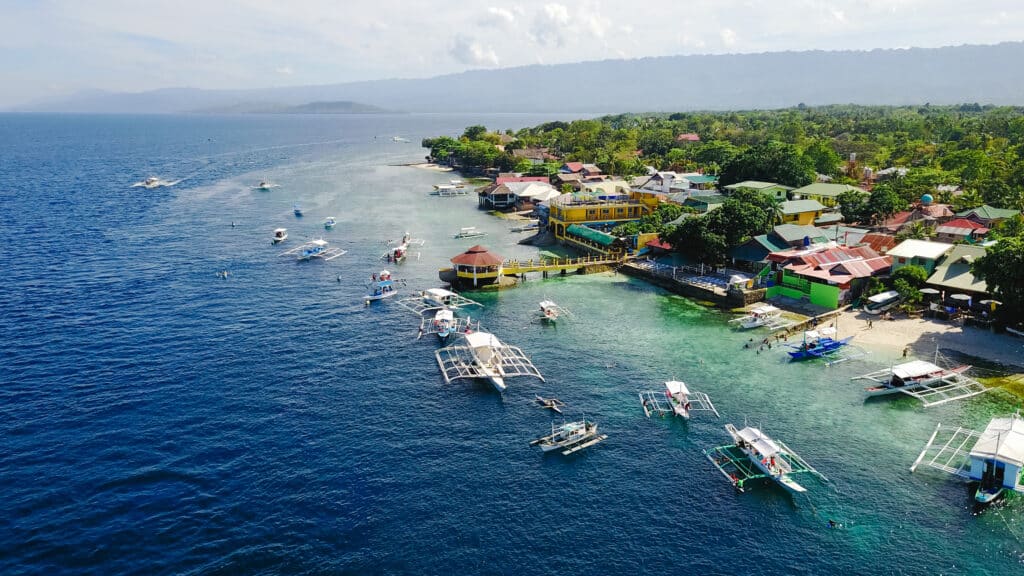PRAGUE – Stuck between retiring in the Philippines or staying where you’ve built your life abroad? For many Filipinos working overseas, this is a decision that weighs heavily. Whether you’re craving the comfort of familiar surroundings or seeking new opportunities in a place you’ve come to love, let’s explore the pros and cons of both options to help you make a choice that truly suits your retirement dreams.
Retiring in the Czech Republic
There are plenty of reasons why anyone should retire in the Czech Republic. from its affordable cost of living and high-quality healthcare to its rich culture and central location in Europe. But before making any plans, it’s important to understand the eligibility requirements for retiring here.

Eligibility as a Foreigner
Foreigners, including Filipino OFWs, can retire in the Czech Republic under certain conditions. The Czech pension system is inclusive of both citizens and non-citizens, provided you meet the required criteria. Below is an overview of the rules and requirements for foreigners regarding retirement in the Czech Republic:
Social Insurance Contributions:
- All foreigners working in the Czech Republic are required to pay the mandatory social security system. These contributions determine eligibility for old-age pensions, disability pensions, and other benefits
- To qualify for a pension, a minimum of 35 years of social insurance contributions is required.1
Retirement Age:
- Foreigners, like locals, must meet the official retirement age to qualify.
- For individuals born after 1965, the retirement age is currently set at 65 years.
- For those born after 1988, a new law has been recently signed by President Petr Pavel to increase it to 67 years.2
Bilateral Agreement of Czech Republic with other countries:
- The Philippines does not have a bilateral agreement with the Czech Republic. This means that any years you worked in the Philippines will not count toward the retirement requirements in the Czech Republic.
- If you have worked in countries that have a bilateral agreement with the Czech Republic, you may be eligible for what’s known as a partial pension. You can read more about it here.
Visa Status
- Non-EU nationals must have a long-term stay visa or residency permit. There is no specific retirement visa available under Czech immigration law.
If you’re considering retiring here, it’s important to ensure that you meet the necessary criteria outlined above. Below are the key pros and cons of retiring in the Czech Republic:
Pros
- Affordable cost of living
- High-quality healthcare
- Excellent public transport
- Safe
- Stable Economy
Cons
- Language Barrier
- Cold Winters
- Cultural Differences and limited services for seniors (compared to other Western Countries in Europe)
RECOMMENDED READS:
- How to Protect Your Skin During the Cold Months: 5 Tips for Filipinos Living in the Czech Republic
- Going Home for the Holidays? We Gotchu, Your OFW Christmas Travel Checklist is Here!
- Not-So-Exotic, Totally Yummy 6 Filipino Dishes to Try
- The Philippines’ Tabo Culture
- AirAsia Expands Routes: Direct Flights from Manila to Istanbul via Kuala Lumpur Begin November 14
Retiring in the Philippines
For many Overseas Filipino Workers (OFWs), setting up a business in the Philippines while working abroad is a dream. It allows you to invest your hard-earned money from abroad into a venture that could secure your financial future and help fund your retirement.
When you decide to retire in the Philippines, it will offer the opportunities to reconnect with family and friends, work in a familiar environment, and leverage your knowledge of the local culture and language. Let’s explore some of the pros and cons of pursuing this dream.

Government Pension Systems
Social Security System (SSS)
- Eligibility: Generally available to private sector employees.
- Benefits: Offers a monthly pension or a lump sum payment based on contributions and interest earned
Government Service Insurance System (GSIS)
- Eligibility: Available to government employees
- Benefits: Provides various retirement programs based on age and length of service
Health Insurance Options
PhilHealth
- Coverage: Provides universal health coverage to all Filipino citizens and residents, including expatriates with valid visas
- Benefits: Offers partial reimbursements for hospital stays, surgeries, and some outpatient services at accredited institutions
- Limitations: Coverage is limited, and additional costs may apply for accommodations, doctor fees, and medications
Popular Retirement Locations
- Dumaguete – Known for its relaxed lifestyle and good healthcare facilities
- Bacolod – Offers a mix of urban amenities and low living costs
- Subic Bay – A secure area with a large expat community
- Baguio City – The summer capital of the Philippines known for colder temperature all throughout and scenic
While retiring in the Philippines may not appeal to everyone, it offers a unique set of advantages that make it an attractive option for some. Here are some pro’s & cons that you might want to consider:
Pros
- Affordable cost of living
- Warm and hospitable culture; English is widely spoken
- Scenic landscapes with beaches, mountains, and tropical weather
Cons
- Limited infrastructure in some areas (e.g., frequent power outages)
- Healthcare access may be challenging outside major cities
Looking Ahead
While retirement may still feel like a distant chapter for many of us, it’s never too early to start planning. As the saying goes,
The best time to plant a tree was 20 years ago. The second-best time is now.
What are your thoughts?
References:
- Integrační centrum Praha. (n.d.). Pension in the Czech Republic. Integrační centrum Praha. https://icpraha.com/en/pension-in-the-czech-republic/ ↩︎
- Expats.cz Staff. (2024, December 15). Czechia’s new retirement age: What’s changing and how it affects foreigners. Expats.cz. https://www.expats.cz/czech-news/article/czechia-has-a-new-retirement-age-here-s-what-changes ↩︎










